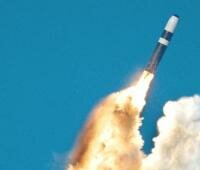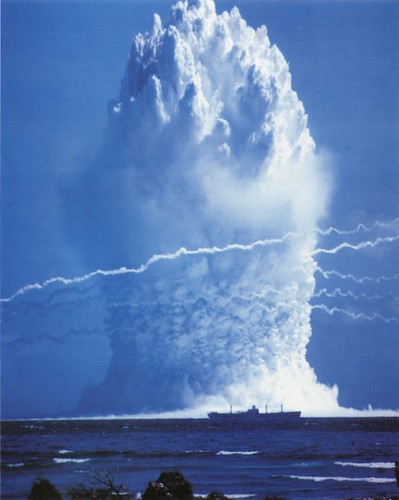Global militarisation
The current priority of the dominant security actors is maintaining international security through the vigorous use of military force combined with the development of both nuclear and conventional weapons systems. Post-Cold War nuclear developments involve the modernisation and proliferation of nuclear systems, with an increasing risk of limited nuclear-weapons use in warfare – breaking a threshold that has held for sixty years and seriously undermining multilateral attempts at disarmament. These dangerous trends will be exacerbated by developments in national missile defence, chemical and biological weapons and a race towards the weaponisation of space.
 The 'New START' agreement recently signed by the US and Russia is an important first step on the road to nuclear disarmament but much of the hard work in reducing and potentially eliminating the vast stockpiles of nuclear weapons held by nations across the globe is still to be done. Before any meaningful multilateral talks and possible agreements on abolition can seriously begin, the US and Russia will need to go much further in reducing their nuclear ordinance writes Andrew Futter, exclusively for sustainablesecurity.org
The 'New START' agreement recently signed by the US and Russia is an important first step on the road to nuclear disarmament but much of the hard work in reducing and potentially eliminating the vast stockpiles of nuclear weapons held by nations across the globe is still to be done. Before any meaningful multilateral talks and possible agreements on abolition can seriously begin, the US and Russia will need to go much further in reducing their nuclear ordinance writes Andrew Futter, exclusively for sustainablesecurity.org From the Center for American Progress:
From the Center for American Progress:

 The stakes are high and the outcome too close to call as the Review Conference of the Non-Proliferation Treaty opens for four weeks of intense debate in New York.
The stakes are high and the outcome too close to call as the Review Conference of the Non-Proliferation Treaty opens for four weeks of intense debate in New York. NUCLEAR ABOLITION: Dramatic Arab Appeal for a Nuclear-Free World
NUCLEAR ABOLITION: Dramatic Arab Appeal for a Nuclear-Free World